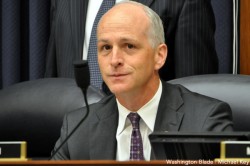National
Mixed views on ‘conscience’ language in defense bill
Some call provision ‘dangerous,’ claim it will lead to discrimination
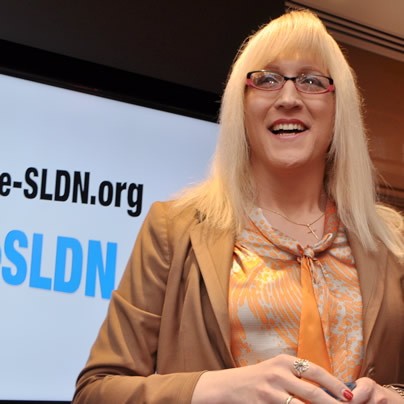
LGBT rights supporters are expressing disappointment with “conscience” language included in the final version of major Pentagon budget legislation, and although views on its potential impact are mixed, most say the language won’t have a substantive change on current military policy.
A bipartisan group of House and Senate lawmakers made public on Tuesday their agreement for the fiscal year 2013 defense authorization bill, a $633 billion proposal that sets policy for the Pentagon, continues pay for troops and provides funding for military programs.
But these lawmakers also agreed to include a watered-down provision along the lines of an anti-gay measure included in the House bill by outgoing Rep. W. Todd Akin (R-Mo.). That provision was understood to mean service members would be allowed to harass their gay colleagues and that military chaplains could refuse to minister to them simply by saying to do so goes against their religious beliefs.
The language in the conference report, listed under Section 533, is divided into two parts: the first says service members can’t be punished for their beliefs so long as they don’t violate the Uniform Code of Military Justice, the second says chaplains can’t be punished for refusing to perform a ritual contrary to their religious beliefs.
The section isn’t as overtly anti-gay as the House language — there’s no mention of “human sexuality” or sexual orientation — and says service members can still be punished if they act or speak out on their beliefs.
Lawmakers were expected to take up the legislation by the end of this week. House Armed Services Committee Chair Buck McKeon (R-Calif.) said during the conference that he was hopeful for a vote Thursday.
Ian Thompson, legislative representative for the American Civil Liberties Union, was among those offering the strongest objections to the “conscience” language, saying passage could lead to “claims to discriminate, not only against lesbian, gay, and bisexual service members, but also against women, religious minorities, and in the provision of health care.”
“It could reopen longstanding prohibitions against harassment, could lead to claims of a right to proselytize other service members as well as civilians in occupied areas, and could lead to claims of an opt-out from providing health care or participating in anti-harassment training,” Thompson said.
One conservative group is also claiming victory. Tony Perkins, president of the anti-gay Family Research Council, expressed satisfaction over inclusion of the “conscience” language in a statement.
“We are happy to see that Congress has included language in the Department of Defense reauthorization bill that will protect the conscience rights of chaplains and service members,” Perkins said. “This language provides for the protection of the First Amendment rights of all our men and women in the Armed Forces.”
But the “conscience” provision is one small part of the defense authorization bill aimed at continuing funds for the Pentagon and paychecks for U.S. troops. Moreover, the provision was included in exchange for dropping another provision in the House bill that would have prohibited same-sex marriages on military bases.
Progressives have reason to celebrate because the final report includes a provision in the Senate bill offered by Sen. Jeanne Shaheen (D-N.H.) to expand health coverage to cover female service members seeking abortions in cases of rape and incest. Previously, the Pentagon would only provide an abortion in the event the mother’s life was in danger.
Furthermore, other LGBT advocates didn’t express the same sense that “conscience” language would have significant impact.
These advocates are echoing the sentiment of Rep. Adam Smith, top Democrat on the House Armed Services Committee, who told the Washington Blade during a news conference on Tuesday that while he personally doesn’t support the language, it won’t have a substantive impact on the military because it’s consistent with current policy.
“I think that’s current law,” Smith said. “You can’t punish someone based solely on their beliefs. It has to be actions. That’s current law. I didn’t think that this language needed to be in it. If you ask me, what the one thing I would take out of this bill, if I could, that would be the one thing I would take out of this bill. Now, it’s significantly neutered, if you will, to the point where I don’t think it’s going to be a problem, and I’m going to support the bill, but that is a provision that I did not support.”
Among the groups saying the provisions would have no effect are the Human Rights Campaign, OutServe-SLDN and the Center for American Progress.
Michael Cole-Schwartz, a Human Rights Campaign spokesperson, called the provision “unnecessary” in the wake of repeal of “Don’t Ask, Don’t Tell,” but also “meaningless.”
“While it’s bad, it’s also meaningless in a lot of ways,” Cole-Schwartz said. “We were successful in making sure an extension of DOMA wasn’t included and it’s not clear that this language, while unfortunate, will have meaningful consequence for service members.”
Allyson Robinson, executive director of OutServe-SLDN, called the inclusion of the language “disheartening” — especially because it comes on the second anniversary of “Don’t Ask, Don’t Tell” repeal — but says it won’t create any new policy for the Pentagon.
“Indeed, no service member or chaplain is ever punished for his or her religious beliefs unless he or she acts on those beliefs in a way inconsistent with military law or good order and discipline,” Robinson said.
But Robinson also said the appearance of the language in the defense bill should serve as a cautionary tale.
“The fact that provisions such as these could make their way into this bill is an indication that the gains we have made are fragile and that we must remain ever vigilant even as we look toward the work ahead of us needed to achieve full equality in our military,” Robinson said.
Crosby Burns, research associate on LGBT issues for the Center for American Progress, also shared the sentiment that nothing new would happen if the “conscience” provision became law.
“Based on the conference reports language, I believe that it essentially reiterates existing freedoms and protections that service members and chaplains already have,” Burns said. “Obviously, it sets a dangerous precedent because it’s based off language in the House bill that was intentionally crafted to allow people to discriminate against openly gay service members, so obviously that’s cause for concern, but based off the existing language, we believe it doesn’t actually change anything in terms of the substantive policy.”
The White House is staying mum on the conference report provision. A spokesperson didn’t respond to a request for comment after it was made public.
In May, the White House issued a Statement of Administration Policy saying the Obama administration “strongly objects” to the conscience language as it appeared in the House bill along with the provisions barring same-sex marriage from taking place on military bases.
Denying the passage of the provision would have no impact, ACLU’s Thompson drew on the White House objections to the House language while condemning the provision found in the conference report.
“Earlier this year, the White House conveyed its strong objections to the original House-passed language based on how the provision would affect ‘all personnel-related actions based on certain religious and moral beliefs, which, in its overbroad terms, is potentially harmful to good order and discipline,'” Thompson said. “Those serious concerns have — despite initial reports to the contrary — not been resolved by this conference report language. Rather, they are magnified.”
But the White House Statement of Administration Policy doesn’t go as far as a veto threat over the conscience provision if the final version of the bill includes this provision.
Asked whether a veto is necessary, Thompson said the ACLU has already called on Obama to veto the defense authorization bill over an unrelated provision related to detainees at Guantanamo Bay, but hasn’t yet determined whether to include the “conscience” provision as another reason to veto the bill.
“The ACLU, as part of a broad coalition of human rights organizations, is already recommending a veto of the legislation based on its Guantanamo detainee transfer prohibitions,” Thompson said. “We are exploring whether to add this provision as another reason we would recommend a White House veto.”
The complete language of Section 533 of the bill follows:
SEC. 533. PROTECTION OF RIGHTS OF CONSCIENCE OF MEMBERS OF THE ARMED FORCES AND CHAPLAINS OF SUCH MEMBERS.
(a) PROTECTION OF RIGHTS OF CONSCIENCE. —
(1) ACCOMMODATION. — The Armed Forces shall accommodate the beliefs of a member of the armed forces reflecting the conscience, moral principles, or religious beliefs of the member and, in so far as practicable, may not use such beliefs as the basis of any adverse personnel action, discrimination, or denial of promotion, schooling, training, or assignment.
(2) DISCIPLINARY OR ADMINISTRATIVE ACTION. — Nothing in paragraph (1) precludes disciplinary or administrative action for conduct that is proscribed by chapter 47 of title 10, United States Code (the Uniform Code of Military Justice), including actions and speech that threaten good order and discipline.
(b) PROTECTION OF CHAPLAIN DECISIONS RELATING TO CONSCIENCE, MORAL PRINCIPLES, OR RELIGIOUS BELIEFS. — No member of the Armed Forces may— (1) require a chaplain to perform any rite, ritual, or ceremony that is contrary to the conscience, moral principles, or religious beliefs of the chaplain; or (2) discriminate or take any adverse personnel action against a chaplain, including denial of promotion, schooling, training, or assignment, on the basis of the refusal by the chaplain to comply with a requirement prohibited by paragraph (1).
(c) REGULATIONS.—The Secretary of Defense shall issue regulations implementing the protections afforded by this section.
National
Destination Tomorrow works to empower LGBTQ community
Sean Coleman is Black transgender man who founded group in 2009
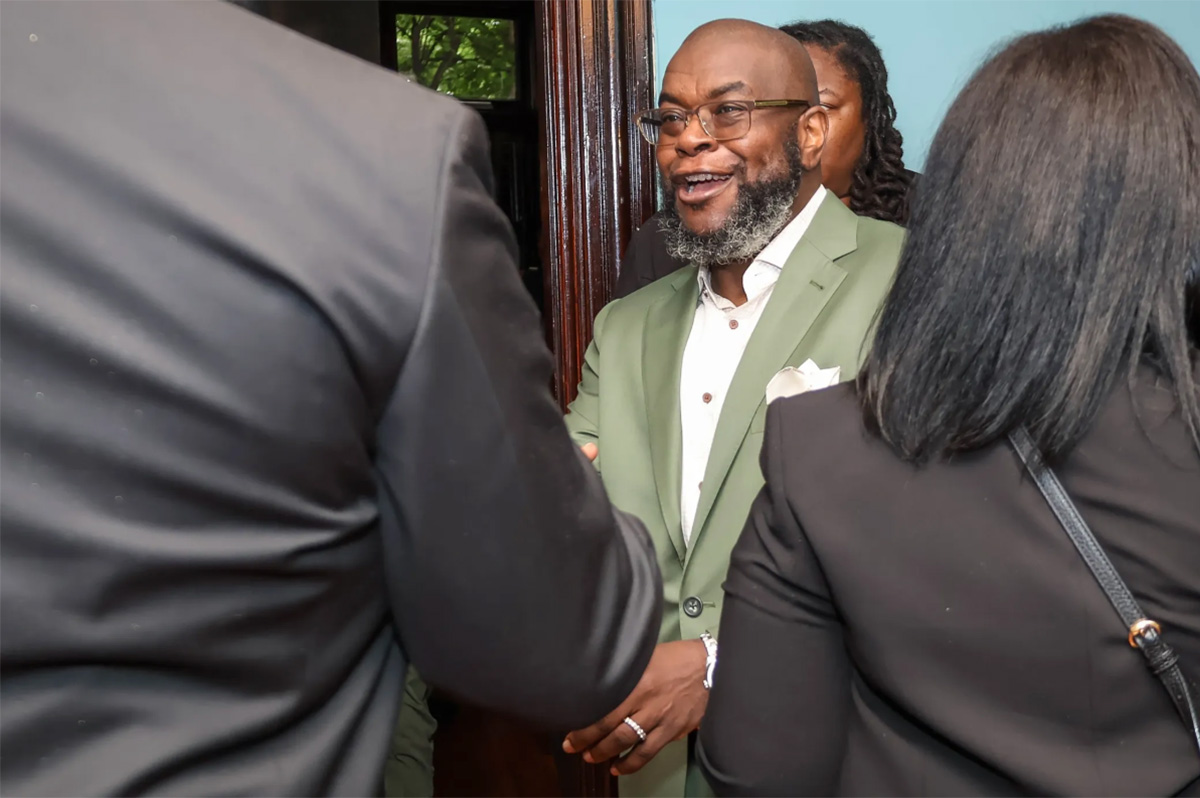
Sean Ebony Coleman became the first transgender African American to own and operate an LGBTQ center with the founding of Destination Tomorrow in 2009. Subsequent centers opened up in Atlanta in 2022 and D.C. in 2024.
Destination Tomorrow was founded on the idea that “it is more helpful to empower our most vulnerable TLGBQ+ community members in a way that takes them off the path of needing emergency care.”
“Our organization emphasizes economic, social, and mental empowerment through a variety of holistic educational, financial, support-based, housing, and health programs,” Destination Tomorrow said on the organization’s website.
With Transgender Day of Visibility today and WorldPride coming to D.C. this June, the Washington Blade spoke with Coleman to get some further insight into how Destination Tomorrow and other organizations are responding to the pressure the Trump-Vance administration is putting on the LGBTQ community.
BLADE: What was the overall reaction to the Trump administration and the heavy anti-LGBTQ rhetoric being pushed by the administration from Destination Tomorrow?
COLEMAN: I think the first thing was disbelief, right? You know he’s not well versed, but the embellishments about the community, particularly the trans community, were so outlandish that they became dangerous. So I think the first thing was, people actually believe this, and we have a message in problem because we’re not responding. We really missed an opportunity to message that differently. Like some of them it was so easy for us to respond and say, “We’re talking about the entire sports world when it comes to college and high school” and those kinds of things, right? We are definitely focusing on the wrong one percent.
I knew it was like collectively as a trans man, just personally, I was like “okay, so how do you show up now?” You’re in a position that folks expect you to at the very least have something positive to say next steps, this is what we’re gonna do, marching all this, whatever. I’m sitting with it like, no, I’m a little nervous. In the moment, most of the danger and most of the rhetoric is happening towards trans and gender nonconforming people and unfortunately, Black and brown and trans and gender nonconforming folks feel it worse when things like this happen.
BLADE: With a lot of organizations getting threats, losing funding, and everybody just being scared, has Destination Tomorrow specifically received any higher amounts of traffic to your locations, either here or other states?
COLEMAN: All three locations have seen an uptick. Funny thing a lot of them are coming in because they just want community. and we do that intake assessment. Then we say “while we have you here, we could do all of these other things.” But it’s really about them coming for community. If you know anything about us, we’re well versed in the house and ballroom community. So we put on balls. We’re planning one now.
And the young people, particularly young trans people, are also coming in for the ball, but they also want to know. Mr. Coleman, what can we do now? What is it? They want a call to action, want to be motivated and I think we have to figure out again this one message of where we’re going to go. Whether it is New York, Atlanta, and D.C., Destination Tomorrow is then going through all of the other trans into the nonconforming organizations. Speaking in one voice and figuring out what movement building looks like for us in this moment and we think that young people should drive it.
Particularly in New York and D.C. will receive some additional resources because we want to be able to address those folks that are going to come in. We want to make sure (to have enough) staff, (increase) our hours. We increase our security and our security presence because that was something that we were concerned about, even if it’s just an in person meeting that we’ve been doing for the last five years, because how do we keep those meetings and that meeting space and our identity safe?
BLADE: Do you feel like given the recent federal government layoffs and this whole Trump takeover of Washington, like, do you think D.C. is prepared or safe enough to start implementing those things that you want to try and get done?
COLEMAN: Yes. I think once we’ve taken a moment to step back and assess the situation, we will be able to come out stronger with the initiative that is going to be most important and most impactful for our community, but I think it is going to take some collaborative effort. I don’t think one agency is gonna be able to do it. I think this is a time for collaboration and allies. um, and not in that order. Right? But D.C. is definitely a safe place for LGBT community members worldwide.
It’s gonna be an amazing time. We’re gonna get an opportunity to show how resilient our community is, how much love we still receive. If you look at some things on social media, it’ll seem like everyone’s demonizing the trans and general nonconforming community and that’s not necessarily the case, right? I think we get sucked into this vacuum with social media and I think once you log off and you actually go outside, you recognize exactly how much support you have from your community. And I think that ties back into our messages. We’re not going to stand around sad and defeated. We’re going to show up, have a good time with WorldPride.
I also see it as an excellent opportunity to strategically put some plans in place. While we have you here, and we’re celebrating, we’re partying, but here is what our next steps will be. We have at least two or three next steps that collectively, you can go back down and all of us a picture goes saying two or three things. Say the same things, stay on message and I think World Pride will be an excellent opportunity to do so.
Along with the comments on TDOV and WorldPride, Coleman also spoke about the current state of LGBTQ politics.
“What’s so unfortunate for me is that we lean into our allies, right? Now is the time for our allies to take a look around the room and say “Oh wait. This person is missing [in the conversation], we should not be speaking on behalf of Black and brown people,” he told the Blade. “I specifically say Black and brown trans people. [Allies] shouldn’t be speaking on behalf of them because I know a few that can actually come here and speak on their own behalf and unfortunately it doesn’t happen. I think it’s because it’s tied into the losing funding across the board. So those LGB organizations are gonna feel that loss. And at some point they may feel like they have to step in and fill a void that they don’t necessarily have to because we’re here.”
Specifically in New York, Coleman has been looking toward the local government to help Destination Tomorrow and other organizations stay protected and operational during times like these.
“Trans, gender nonconforming and LGB issues go across different issues. Whether we’re talking about housing, criminal justice reform, or reproductive rights. We should be included in those discussions, and we should be included in those funding opportunities,” said Coleman. “And I think this gives us an opportunity to show that Destination Tomorrow has a program called Pride at Work. to the workforce development program, where we’re pitching it in D.C. and we’re actually in our third year of doing it in New York City. That’s an example of how workforce development should be for all of us, right?”
“So a lot of the work we’ve done in the last couple of months is really meeting with all our elected officials and saying, ‘This is the message that we’d like you to push. This is what we want to say, this is how we feel. Because you are not saying it, it feels like you left us behind. This is where you are missing the mark and it is up to you to fix it,’” he added.
A discussion for New York mayoral candidates took place later that evening. One of the things that Coleman wanted to heavily iterate to the candidates was that “at the end of the day, we’re paying attention now. We may not have been as politically engaged as we should have been, but we are now.”
U.S. Federal Courts
Second judge blocks Trump’s anti-trans military ban
Federal courts in D.C. and Washington State have now issued injunctions

The U.S. District Court for the Western District of Washington on Thursday became the second court to issue a nationwide injunction blocking the enforcement of President Donald Trump’s executive order barring transgender people from military service.
The order in Schilling v. Trump from Judge Benjamin Hale Settle comes after Judge Ana Reyes of the U.S. District Court for the District of Columbia blocked implementation of the ban earlier this month in Talbott v. Trump.
Friday was the date by which the Pentagon was to begin identifying and separating transgender service members from the armed forces, per Trump’s executive action.
The lead attorneys in Talbott v. Trump, GLAD Law Senior Director of Transgender and Queer Rights Jennifer Levi and Shannon Minter, legal director of the National Center for Lesbian Rights, shared statements about the injunction in a press release by NCLR.
“Given the thousands of brave and decorated transgender servicemembers facing unthinkable harms as the result of this ban, we are heartened but not surprised by today’s decision,” Levi said. “President Trump’s executive order and Secretary [Pete] Hegseth’s implementation represent a policy that cannot be constitutionally justified. Thousands of transgender servicemembers currently serving have clearly demonstrated they meet all military standards, with many deployed to critical missions worldwide, proving their capabilities beyond question.”
Levi continued, “These dedicated servicemembers and their families have earned our nation’s gratitude and respect, and the government has a responsibility to honor the commitments it has made to them. This is about keeping faith with Americans who have risked everything to defend our freedoms.”
“In both Talbott and Shilling, it was abundantly clear to the court that it must act swiftly to protect our troops from an unconstitutional and indefensible ban that would disrupt the lives and dismantle the careers of thousands of transgender servicemembers and their families,” Minter said. “The harms associated with this ban are gut-wrenching.”
Minter continued, “In each of these cases, the government did not even attempt to claim that any evidence supported its position. There is no reason to discharge individuals who are serving capably and honorably.”
U.S. Federal Courts
Federal judge hears case that challenges Trump passport executive order
State Department no longer issues passports with ‘X’ gender markers
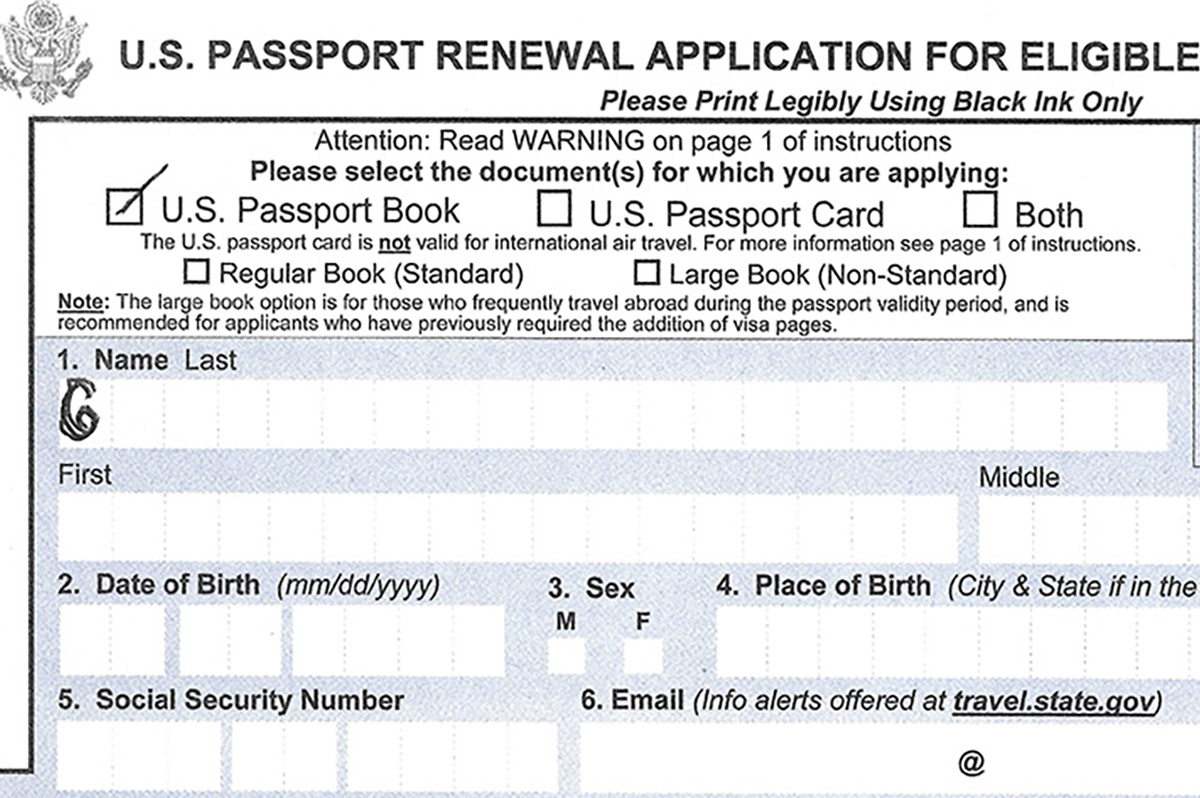
A federal judge in Boston on Tuesday heard oral arguments in a lawsuit against President Donald Trump’s executive order that bans the State Department from issuing passports with “X” gender markers.
Ashton Orr, Zaya Perysian, Sawyer Soe, Chastain Anderson, Drew Hall, Bella Boe, and Reid Solomon-Lane are the plaintiffs in the class action lawsuit the American Civil Liberties Union, the ACLU of Massachusetts, and the private law firm Covington & Burling LPP filed in U.S. District Court for the District of Massachusetts. The lawsuit names Trump and Secretary of State Marco Rubio as defendants.
Former Secretary of State Antony Blinken in June 2021 announced the State Department would begin to issue gender-neutral passports and documents for American citizens who were born overseas.
Dana Zzyym, an intersex U.S. Navy veteran who identifies as nonbinary, in 2015 filed a federal lawsuit against the State Department after it denied their application for a passport with an “X” gender marker. Zzyym in October 2021 received the first gender-neutral American passport.
The State Department policy took effect on April 11, 2022.
Trump signed the executive order that overturned it shortly after he took office. Rubio later directed State Department personnel to “suspend any application requesting an ‘X’ sex marker and do not take any further action pending additional guidance from the department.”
“Even before Donald Trump was inaugurated, it was clear to me he wanted to control the lives and identities of transgender people like myself,” said Orr, a transgender man who lives in West Virginia, in a press release the ACLU released before U.S. District Judge Julia Kobick heard the case. “Like many others, I rushed to update my passport hoping I could get an accurate version. Now, the State Department has suspended my application and withheld all my documents from me, including my passport, my birth certificate, and even my marriage license.”
Li Nowlin-Sohl, a staff attorney for the ACLU’s LGBTQ and HIV Project, described the Trump-Vance administration’s passport policy as “openly discriminatory and animated by a transparent desire to drive transgender people out of public life altogether.”
Germany, Denmark, Finland, and the Netherlands are among the countries that have issued travel advisories for trans and nonbinary people who plan to visit the U.S.
WorldPride is scheduled to take place in D.C. from May 17-June 8. InterPride, the organization that coordinates WorldPride events, on March 12 issued its own travel advisory for trans and nonbinary people who want to travel to the U.S.
It is unclear when Kobick will issue her ruling.
-

 Books4 days ago
Books4 days ago‘Hurt Capital’ chronicles young life of bipolar, trans writer
-
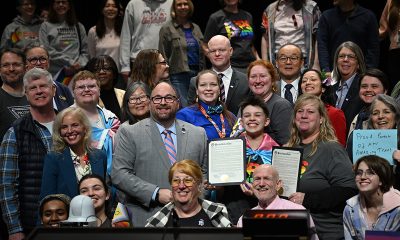
 Virginia3 days ago
Virginia3 days agoFairfax County School Board issues Trans Day of Visibility proclamation
-

 District of Columbia4 days ago
District of Columbia4 days agoTrans pride thriving in D.C.’s queer nightlife scene
-

 Trinidad and Tobago3 days ago
Trinidad and Tobago3 days agoTrinidad and Tobago recriminalizes homosexuality


